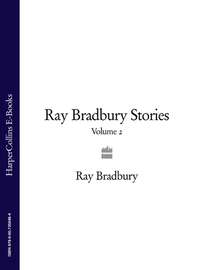Sadece Litres'te okuyun
Kitap dosya olarak indirilemez ancak uygulamamız üzerinden veya online olarak web sitemizden okunabilir.
Kitabı oku: «Ray Bradbury Stories Volume 2», sayfa 5
Bir şeyler ters gitti, lütfen daha sonra tekrar deneyin
₺416,86
Türler ve etiketler
Yaş sınırı:
0+Litres'teki yayın tarihi:
27 aralık 2018Hacim:
1174 s. 8 illüstrasyonISBN:
9780007497690Telif hakkı:
HarperCollins